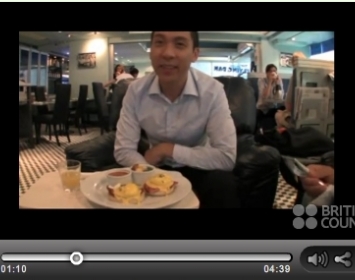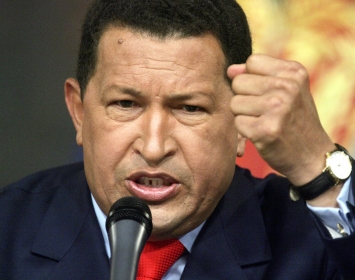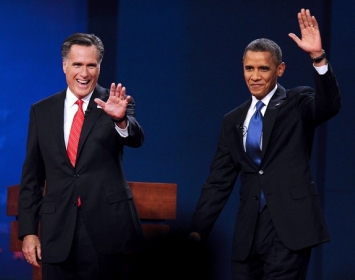Az alábbiakban röviden összefoglaljuk az új választási rendszert angolul, hátha valakinek beszélnie kell róla külföldi barátaival, turistákkal vagy a nyelvvizsgán!
Hungary held a parliamentary election on 6 April 2014 first according to the new Constitution of Hungary which went into force on 1 January 2012. The new electoral law also entered into force that day. For the first time since Hungary’s transition to democracy, the election had a single round. Let’s see how the new electoral system works in Hungary.

Every Hungarian citizen over the age of 18 can participate in the parliamentary elections, held every four years, according to the new Constitution, which came into force on the 1st of January 2012. 2014 was the first time that the election had a single round, in which citizens have one vote for a party list and one for a constituency candidate. Those Hungarians who are registered as minority voters have the possibility to vote either for a party list or for a minority list. Polish, German, Rusyn, Serb, Armenian, Romanian, Bulgarian, Slovak, Croat, Ukrainian, Romani, Greek and Slovene minorities have registered to have their lists.The votes are cast at polling stations close to the voters’ residence.
The following significant changes were made to the electoral system: while the previous elections required the participation of at least 50 per cent of the voters in the first round, now there is no minimum requirement for the results to be valid. The number of seats in the Parliament has been reduced by almost half, from 386 to 199. 106 of these are constituency seats, which means that they are held by Members of Parliament representing the voters in each constituency, and 93 seats are reserved for candidates based on the votes cast on party lists and minority lists.
The constituency borders have also been changed, partly because the number of seats has been reduced. The number of people living in various constituencies was the other reason, as in the old system, the population of the smallest constituency (33,077) was only one third of the largest one (98,167). Consequently, the vote of the people living in larger constituencies was worth two or even three times less than of those living in smaller ones. Budapest, for example, used to consist of 32 constituencies and now it has only 18.
Parties gain seats in the Parliament in proportion to the votes received out of all the party list and minority list votes. The 5 per cent threshold is still in force and becomes 10 per cent if two parties have a joint list. The suffrage, for the first time, was extended to Hungarian citizens who do not have a permanent residence in Hungary: they are entitled to cast their ballots for the party list. Any Hungarian citizen over the age of 18 and resident in Hungary can stand as a candidate for constituency seats in the parliamentary election, provided that they have at least 1000 signatures from people supporting their nomination. Parties can appear on the party list if they have candidates in at least 27 constituencies across 9 counties and Budapest.
election – választás
Constitution – alkotmány
to come into force – hatályba lép
single round – egyfordulós
vote – szavazat
party list – pártlista
constituency candidate – választókerületi jelölt
minority voter – kisebbségi szavazó
polling station – szavazóhelység
residence – lakhely
electoral system – választási rendszer
per cent – százalék
valid – érvényes
to reduce – csökkenteni
Member of Parliament – parlamenti képviselő
border – határ
third – harmad
consequently – következésképpen
to be worth – érni valamennyit, valamit
in proportion to – valaminek az arányában
threshold – küszöb
joint list – közös lista
suffrage – szavazati jog
to be entitled to – jogosult valamire
ballot – szavazócédula
signature – aláírás
to support – támogatni
nomination – jelölés
county – megye
Basic Election Vocabulary – 20 words to remember
expression |
definition |
in Hungarian |
ballot |
a form used in voting |
szavazócédula |
ballot box |
a box in which votes are placed |
urna |
campaign |
a series of events (advertisements, public appearances, debates), rallies and speeches intended to persuade voters to vote for a particular candidate |
kampány |
candidate |
a person who runs for political office |
jelölt |
citizen |
a person born in a country or who chooses to become a member of that country by law |
állampolgár |
debate |
an organised public discussion by the candidates running for office |
vita |
election |
the act of choosing by voting |
választás |
exit poll |
an informal poll taken when people leave the voting booth; they are used to predict the outcome of the election before polls are closed |
a választások eredményeinek gyors előrejelzését szolgáló, nem hivatalos kutatási módszer |
inauguration |
the ceremony in which the President/Prime Minister/ Ministers take(s) an oath before taking office |
felavatás, avatás |
majority |
more than half of the votes |
többség |
political party |
a group of people who share similar views and who work together to elect a candidate |
politikai párt |
politician |
a person who is running for office or has won an election and is already in office |
politikus |
poll |
a survey of people to find out what they think |
szavazás |
polling place |
a place where people cast their votes |
szavazóhely |
registration |
the act of signing up to vote |
regisztráció |
to elect |
to choose someone for an official position by voting |
választani |
to nominate |
to suggest a candidate for political office |
jelölni |
to vote |
to make a choice in an election |
szavazni |
voter |
a person who votes |
szavazó |
voting/polling booth |
a small enclosure in which a person votes |
szavazófülke |
… and now, cover the words and do the exercises!

I. Fill the blanks with the words given!
ballot |
voting booth |
nominating |
citizen |
campaign |
exit poll |
1) I already cast my ……………… yesterday.
2) My aunt is a United States …………… but has lived most of her life in Italy.
3) Voting is a private matter so you must be alone when you go into the ……………. and mark a cross on the ballot paper.
4) What is the process of ……………… candidates for an election?
5) Election ……………… results were projected onto the Big Ben Clock Tower of the Palace of Westminster in London in 2010.
6) During an election ………………., broadcasters play an important role in informing people about the issues, political parties and candidates involved.
II. Choose the correct answer!
1. to make a choice in an election
a) debate
b) vote
c) poll
2. a form used in voting
a) poll
b) vote
c) ballot
3. an organised public discussion by the candidate running for office
a) registration
b) debate
c) inauguration
4. a person who runs for a political office
a) candidate
b) politician
c) citizen
5. a person who votes
a) citizen
b) candidate
c) voter
answers:
I. 1-ballot 2-citizen 3-voting booth 4-nominating 5-exit poll 6-campaign
II. 1-b 2-c 3-b 4-a 5-c





